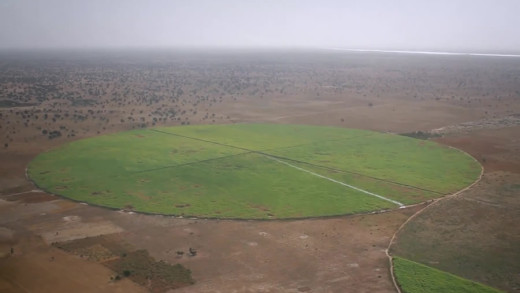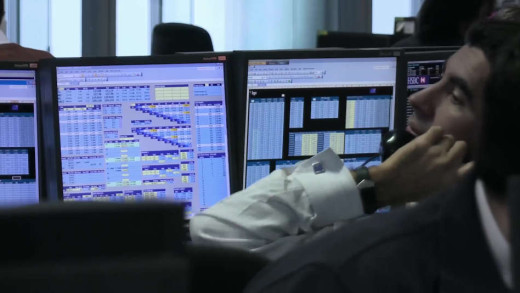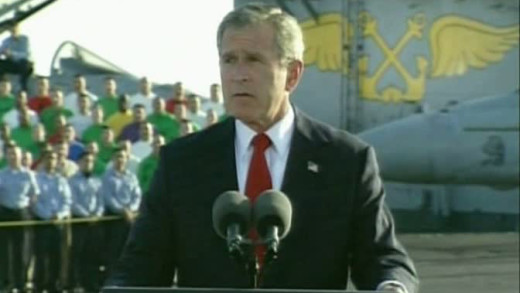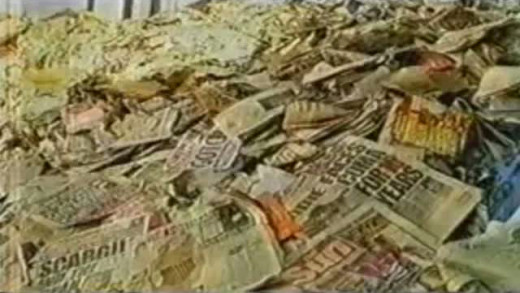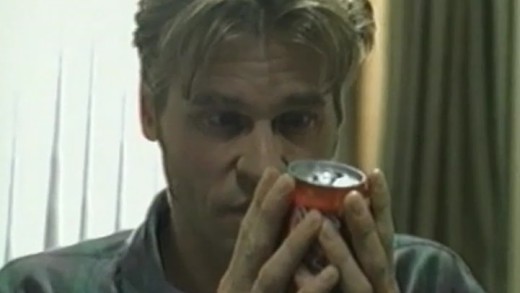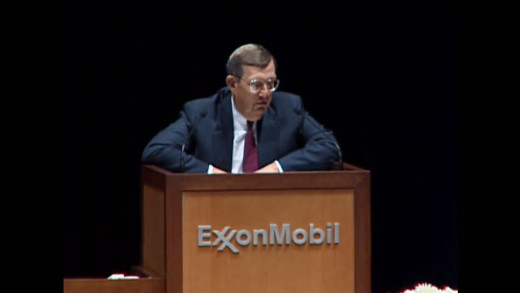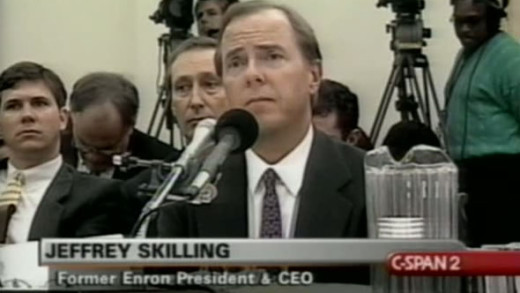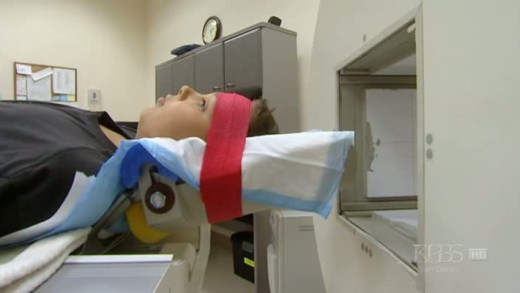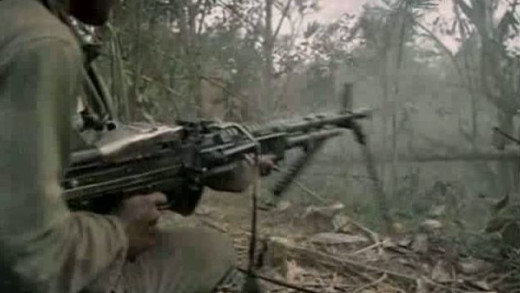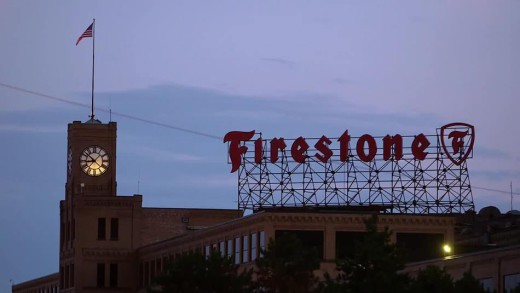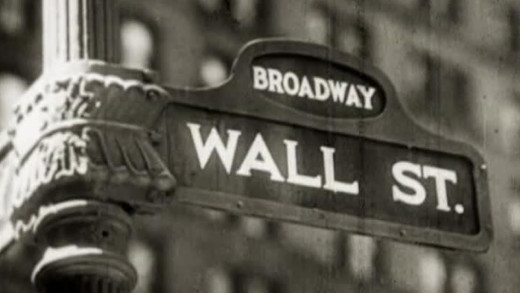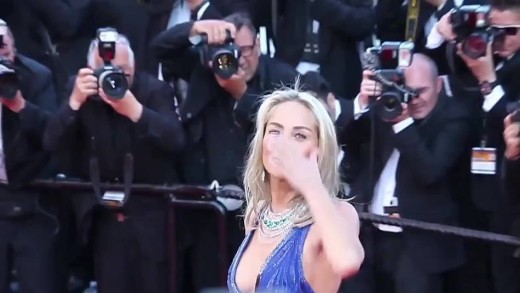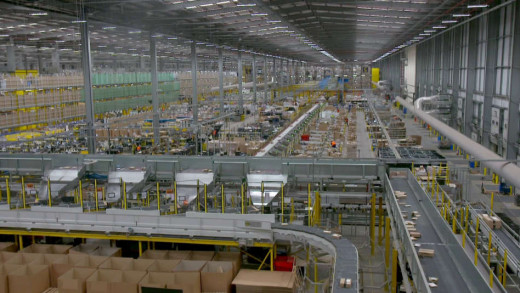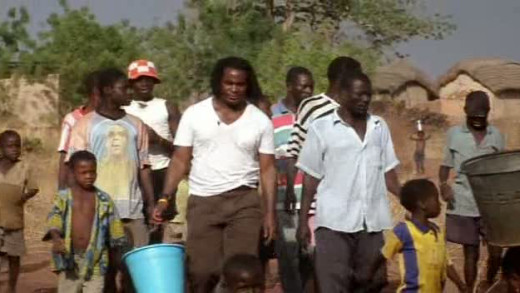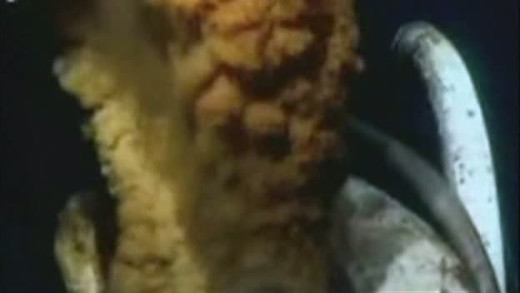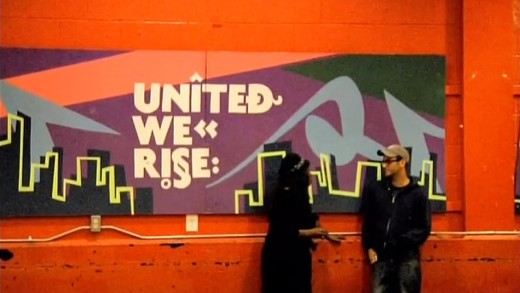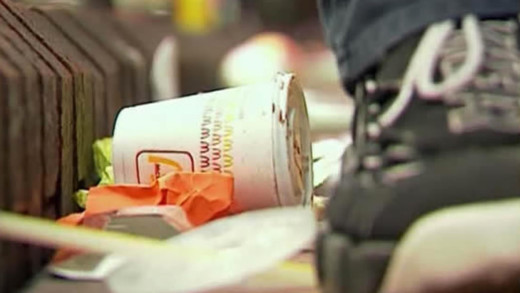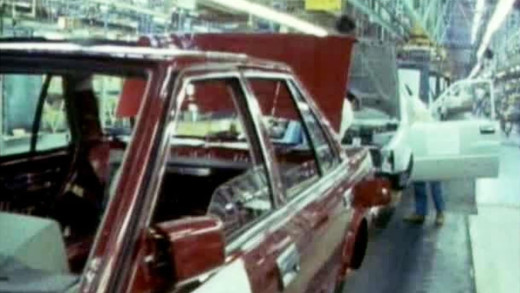Steal This Film
Presenting accounts from prominent players such as The Pirate Bay, Piratbyrn, and the Pirate Party in the Swedish piracy culture, Steal This Film documents the movement against intellectual property. In particular, the film provides critical analysis of the alleged regulatory capture attempt performed by the Hollywood film lobby to leverage economic sanctions by the United States government on Sweden through the WTO...
A World Without Water investigates the future of the world's water supply as it currently stands and travels to Bolivia to show just one example in many of the privatisation of the water supply and the turning over of water to corporations such as Coca Cola...
Rich, land-hungry nations like China and Saudi Arabia are rushing to Mali, West Africa, to grab up land for large agribusiness investments. Malian peasants do not welcome these developments however, seeing this as yet another manifestation of imperialism. Indeed local farmers themselves are being forced off the land by their own governments to allow foreign interests in, promising large sums of money. Land titles are denied, lands are cleared and families moved on. Though as Mali experiences a military coup and developers are frightened off, the situation improves for local farmers...
In 2010, the United States announced the construction of the first new nuclear power plant in more than 30 years. But a year later in Japan, a 9.0 magnitude earthquake hit, preceding a cataclysmic meltdown at the Fukushima Daiichi Power Plant bringing the reality of nuclear power back into public consciousness across the globe. For some. Both political parties of the United States ignored this and continued a pro-nuclear agenda, while others, forgetting more of the past, didn't realise the history of home. The Atomic States of America serves to break this forgetting by travelling from the gates of Three Mile Island, to the cooling ponds of Braidwood to document just some of what has happened and is happening with nuclear power in the United States today. By speaking with communities throughout the country, this film documents arrays of stories of polluted drinking water, government collusion with industry, cover-ups, cancer epidemics and other suppressed stories. Begun more than a year before the disaster in Japan, this film gains a unique before and after perspective, seeking to inspire an honest remembering about just what this culture has done and continues to do for power at the expense of the world.
In recent years, nature conservation has become a booming business where huge sums of money change hands, and endangered species become exotic financial products. Banking Nature, delves into this hidden world of so-called environmental banking, where huge corporations such as Merrill Lynch and JP Morgan Chase buy up the land and habitat of endangered species, and then sell them in the form of shares. Companies that inevitably harm the environment are then obliged to buy credits to offset the damage that they have caused. In Uganda, we meet men who measure trees to determine how much carbon they store and then a banker from the German firm that sells the resulting carbon credits. In Brazil, the steel giant Vale destroys the rainforest, replaces it with a monocrop tree plantation, and reaps the benefits of environmental credits as if the rainforest was still standing. Banking Nature posits that we disallow the same corporate criminals responsible for the global financial crisis from turning what's left of the natural world into their final corrupt commodities market.
Why have a real election when you can just buy the result? In Bush Family Fortunes, Greg Palast examines various aspects of the Presidency of George W. Bush, including the very controversial 2000 US Presidential 'election' and of course, the invasion of Iraq. What are the Bush family connections?
The Daily Mirror used to be a peoples' paper that respected its readers and earned trust and affection. But that changed out of all recognition when the British public were told that the new information technology, heralded by The Sun's move to Wapping, would bring a greater variety of newspapers and a more diverse media. Instead, what happened was rapid moves toward contracted press controlled by ever fewer proprietors. John Pilger describes the downfall of his old paper and the all-pervasive influence of Rupert Murdoch...
Chemical flame retardants are everywhere--in our furniture, our homes, our bodies. But do they work as promised? And are they making us sick? The three chemical companies producing flame retardants would prefer that we not ask these questions, and they've spent millions of dollars on lobbyists, publicists and influencers to ensure that we don't. Toxic Hot Seat wades through the mess to piece together an intricate story of manipulation that details how Big Tobacco skillfully convinced fire safety officials to back a standard that, in effect, requires all furniture to be filled with toxic chemicals...
Behind the Screens explores how Hollywood movies have largely become vehicles for the ulterior motives of advertising and marketing by the studios and media owners, rather than genuine storytelling or simple entertainment in their own right. By showing examples from popular movies such as Wayne's World, Forrest Gump, The Lion King, Summer of Sam, and Toy Story, this documentary demonstrates how this trend toward hypercommercialism—through product placement, tie-ins, merchandising and cross-promotions—comes to define the modern movie. What are the problems with this, as well as the cultural and social impacts? Combined with analysis from film scholars, critics, political economists, and an Oscar-nominated screenwriter, Behind the Screens presents accessible arguments to these questions.
The Power of Big Oil is a three-part series that investigates the decades-long failure to confront the threat of climate change and the role of the fossil fuel industry. The series presents a parade of former oil company scientists, lobbyists, and public relations strategists who lay bare how the biggest petroleum firm in the United States, Exxon, and then the broader petroleum industry globally, moved from attempting to understand the causes of a global heating to a concerted campaign to hide the making of an environmental catastrophe. Over three episodes--Denial, Doubt, Delay--the series documents the corporate cooptation of science, the manipulation of public opinion, and political figureheads that mirror conduct by other industries--from big tobacco to the pharmaceutical companies responsible for the opioid epidemic.
In 2001, the collapse of the Enron Corporation was of one of the largest business scandals in American history. The collapse resulted in criminal trials for several of the company's top executives, bringing the facts of exposure to Enron's involvement in the California electricity "crisis," where the company had rigged the market in order to generate huge speculative profits during the power shortages and blackouts of the time that effected millions of people.
The Medicated Child confronts psychiatrists, researchers and government regulators about the risks, benefits and many questions surrounding psychotropic drugs for children. The biggest current controversy surrounds the diagnosis of bipolar disorder. Formerly called manic depression, bipolar disorder was long believed to only 'apply to adults', but in the mid-1990s 'bipolar disorder in children' began to be diagnosed at much higher rates, sometimes in children as young as 4 years old...
We
We is a visual essay exploring the politics of empire, war, corporate globalisation, imperialism and history; using the words of Indian author and political activist Arundhati Roy, from her speech Come September given in Santa Fe, New Mexico one year after the September 11th attacks--not long after the invasion of Afghanistan. The result is a mix of archive footage illustrating specific historical events throughout South America, the Middle East and elsewhere, in context with the September 11th attacks; placed alongside the themes of empire, global economics and a short history of neo-collonialism...
This film makes use of court documents, diplomatic cables and testimony by business figures themselves, as one case of many, in which corporations and indeed governments side with warlords, as good for business, in the endless pursuit of profit. The story revolves around the civil war of Liberia in the 1990s, with the seeds for exploitation and destruction having been planted a century before by the United States, when formally enslaved peoples in Liberia in-turn set up a society of racism, greed and exploitation, exacerbated by western economic powers. Years later, with the presence of Firestone corporation coming to Liberia to exploit vast plantations of rubber for control over the 'market,' the company unfolds as a considerable catalyst for systemic terror, being the forefront for pushing for profits at all costs amongst a brutal civil war; colluding with warlords and corrupt governments in pursuit of this ruthless end. Unfurling as a case study in these methods, this film documents the case that is not so unique but a story amongst many—particularly throughout the so-called third-world—where corporate might and globalisation have extreme consequences...
"Quants" are the mathematicians, software developers and computer programmers at the centre of the global economy. These are the people who designed the "complex financial products" that caused the financial crisis of 2008. Here they speak openly about their game of huge profits, and how the global economy has become increasingly dependent on mathematical models that quantify commodified human behaviours to the point of insanity. But things don't stop there. Through the convergence of economy and technology, the Quants have now brought this model into the world of the machines, where trades are done at the speed of light, far from the realm of human experience. The machines are in charge. Some Quants are even now worried. What are the risks of this complex machine? Will the Quants be able to keep control of this financial system, or have they created a monster?
The Trap
If one steps back and looks at what freedom actually means in the West today, it's a strange and limited kind of freedom. The United States and its empire self-describe fighting the Cold War for "individual freedom," yet it is still something that the leaders of our so-called democracies continually promise to give us. Abroad, in Iraq and Afghanistan, the attempt to force "freedom" on to other people has led to more than just bloody mayhem, and this, in turn, has helped inspire terrorist attacks in Britain and elsewhere. In response, the government has dismantled long-standing laws that were designed to protect individual freedom and civil liberties.
Flow—For The Love Of Water builds a case against the growing privatisation of the world's dwindling fresh water supply with a specific focus on human rights, pollution, the politic of corporate influence in the emergence of a domineering global water cartel. The film names and clearly documents many of the culprits, while asking the question—can anyone really 'own' water?
Over six desperate days in October 1929, the New York Stock Exchange crashed leading to the collapse of three thousand banks, taking people's savings with them. In a matter of days, the United States economy was obliterated. The crash was followed by a devastating worldwide depression that lasted until the Second World War. Finances did not regain their pre-crash values until 1954. This film recounts the story of a financial disaster that we hoped could never happen again, revealing the familiar tune of cheap credit, consumerism, greed, corruption and cronyism in the current-day financial crisis...
By examining the people and practices of the media and entertainment industries, The Fourth Estate illuminates not only specific incidences of corruption by press groups, but how the wider model of mainstream journalism itself as a for-profit entity has a huge amount to answer for in terms of democracy and the state of politics throughout the world. Filmed over two years throughout the UK on no budget, the filmmakers profile journalists, organisers and critics of industrial media practices, stemming from the Leveson Inquiry in 2011 which was set up to examine the culture, practices and ethics of the British press following the News International phone hacking scandals of the Murdoch media empire. While the phone hacking scandal illuminated the depth and breadth of the culture of British journalism, the media's focus at the time quickly diverted from a brief period of self-examination, back to business as usual. This film instead continues the analysis by looking at the larger implications of a for-profit media model and its connections to ideology, entertainment, and hence the resulting political framework that's in crisis.
In a quarter of a century, the Amazon corporation has propelled Jeff Bezos from 'online bookseller' to technology behemoth. He is the richest man on the planet, and the company he founded is one of the most powerful in the world. This documentary investigates Amazon's rise to corporate rein, revealing the problematic inside-operations that have the public tethered to its services. Former high-level insiders describe Amazon's obsessive data-gathering operations, that enable the company to use what it knows about us to shape not only the future of retail, but the workplace and technology in synergy. On both sides of the world, politicians and regulators are tardily beginning to question Amazon's power. But can the public rein in this corporate empire and break its addiction before even more damage is done to the structure of society and the environment?
Robert Beckford visits Ghana to investigate the hidden costs of rice, chocolate and gold and why, 50 years after independence, a country so rich in 'natural resources' is one of the poorest in the world. He discovers child labourers farming cocoa instead of attending school and asks if the activities of multinationals, the World Bank and International Monetary Fund have actually made the country’s problems worse...
One year after BP's Deepwater Horizon rig exploded spewed a massive 170 million gallons of oil into the Gulf of Mexico, BP claims victory -- that most of the oil is gone. Investigative journalist Greg Palast sets off to test this claim in person and digs into the history of BP and similar incidents. Revealed is the corporations collusion with government, its strong political influence worldwide, along with the massive ecological impact of the BP explosion, set to last for decades...
Admit it--you don't really read the endless pages of terms and conditions connected to every website you visit or phone call that you make do you? Of course not. But every day billion-dollar corporations are learning more about your interests, your friends and family, your finances, and your secrets--precisely because of this; and are not only selling the information to the highest bidder, but freely sharing it with the government. And you agreed to all of it. With plenty of recent real-world examples, Terms And Conditions May Apply covers just a little of what governments and corporations are legally taking from Internet users every day--turning the future of both privacy and civil liberties into serious question. From whistleblowers and investigative journalists to zombie fan clubs and Egyptian dissidents, this film demonstrates how all of us online have incrementally opted-in to a real-time surveillance state, click by click.
How to Let Go of the World and Love All the Things Climate Can't Change travels the globe, from New York City to the Marshall Islands and China, to meet with people who are committed to reversing the tide of global warming. The film examines the intricately woven forces that threaten the stability of the climate and the lives of the world's inhabitants.
The Power of the Fed investigates how the United States central bank's actions have played out over the years on Wall Street versus Main Street, since the last financial crash of 2008. The film traces how the experiment the Fed began in 2008 has been dramatically ratcheting up, peaking with the COVID-19 crisis in 2020. But, of course, rather than help correct from the huge corruption and financial abstractions that caused the 2008 crash, the fed has doubled down on its policies of "quantitative easing" which have gone on to help widen the greatest inequality of wealth in history, pushing financial products even further removed from the economy, driving inflation, automation, and worsening the impending cycles of boom and bust. The rise of speculative cryptocurrencies and non-fungible tokens (NFTs) has only fueled the mania, as economic volatility increases.
McLibel
McDonald's loved using the UK libel laws to suppress criticism. Major media organisations like the BBC and The Guardian crumbled and apologised. But then they sued environmental activists Helen Steel and Dave Morris. In what then became the longest trial in English legal history, McLibel documents the two activists who represent themselves against McDonald's £10 million legal team with the marathon battle finally concluding at the European Court of Human Rights. The result takes everyone by surprise -- especially the British Government...
For the people of Vietnam, war is not over. Three generations on from 1975, babies are still being born with serious birth defects and genetic abnormalities -- the legacy of the United States intensive use of chemical weapons. To this day, it is still unknown just how many have been affected. In 2005, on the eve of a historic lawsuit to determine the culpability of the United States, this film directly portrays the powerful effects of Agent Orange.
Denied a sense of nationalism since the second World War, Japanese society slowly re-established itself as a 'corporate' society in the eyes of the west, with hi-tech industry and mass manufacturing. Japan, Behind The Mask reports on the contrast between this popular image and the stereotypes of Japanese culture, revealing the reality of the lives of ordinary people who do not fit the image; the extraordinary part played by women; and the subtle, yet forceful way the Japanese establishment is today reclaiming its nationalism...


